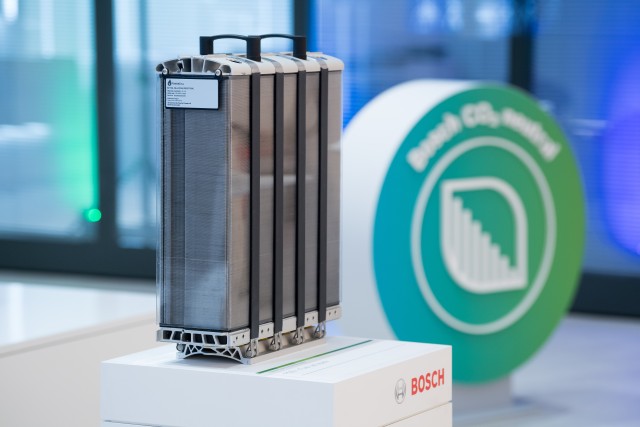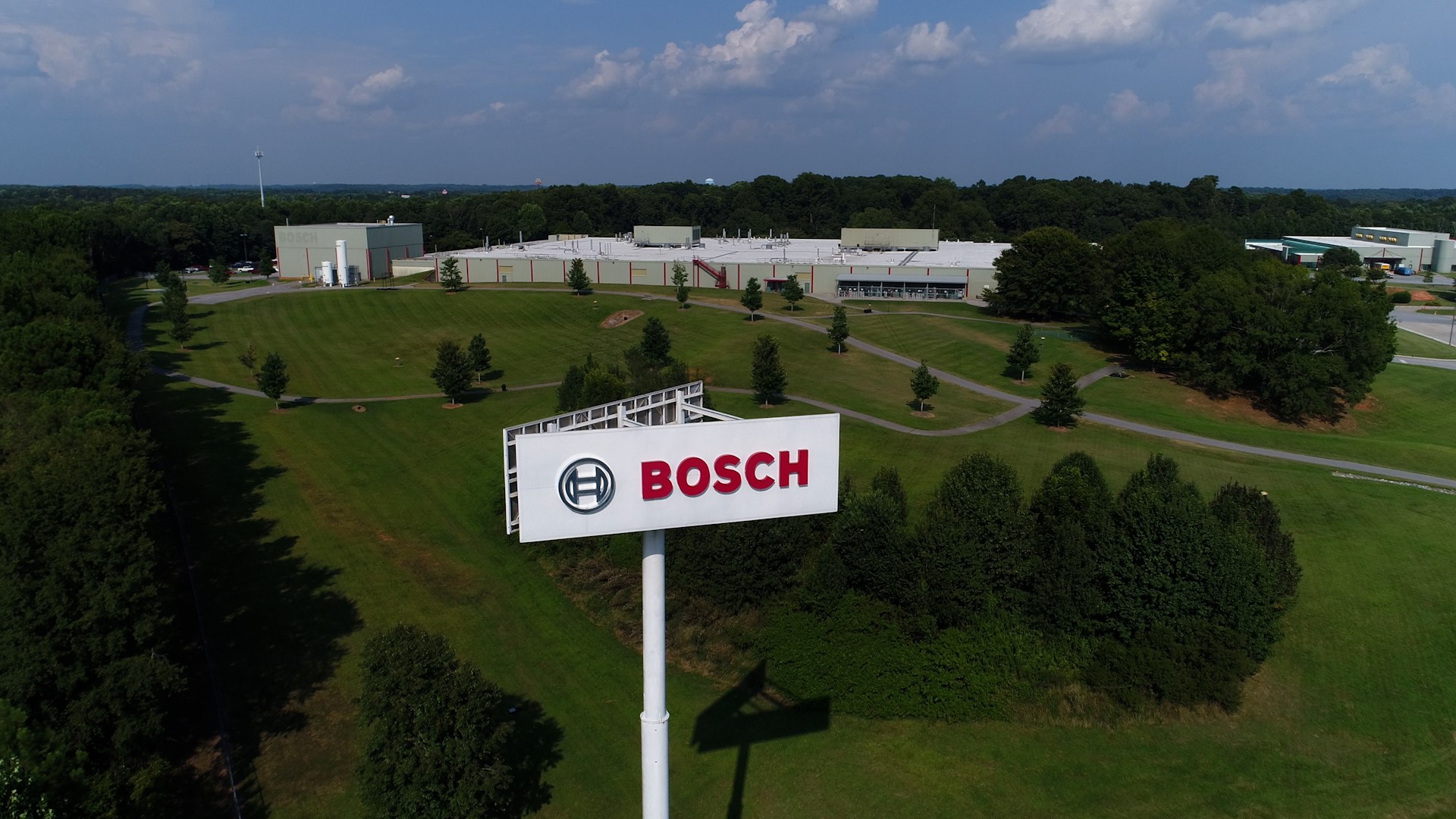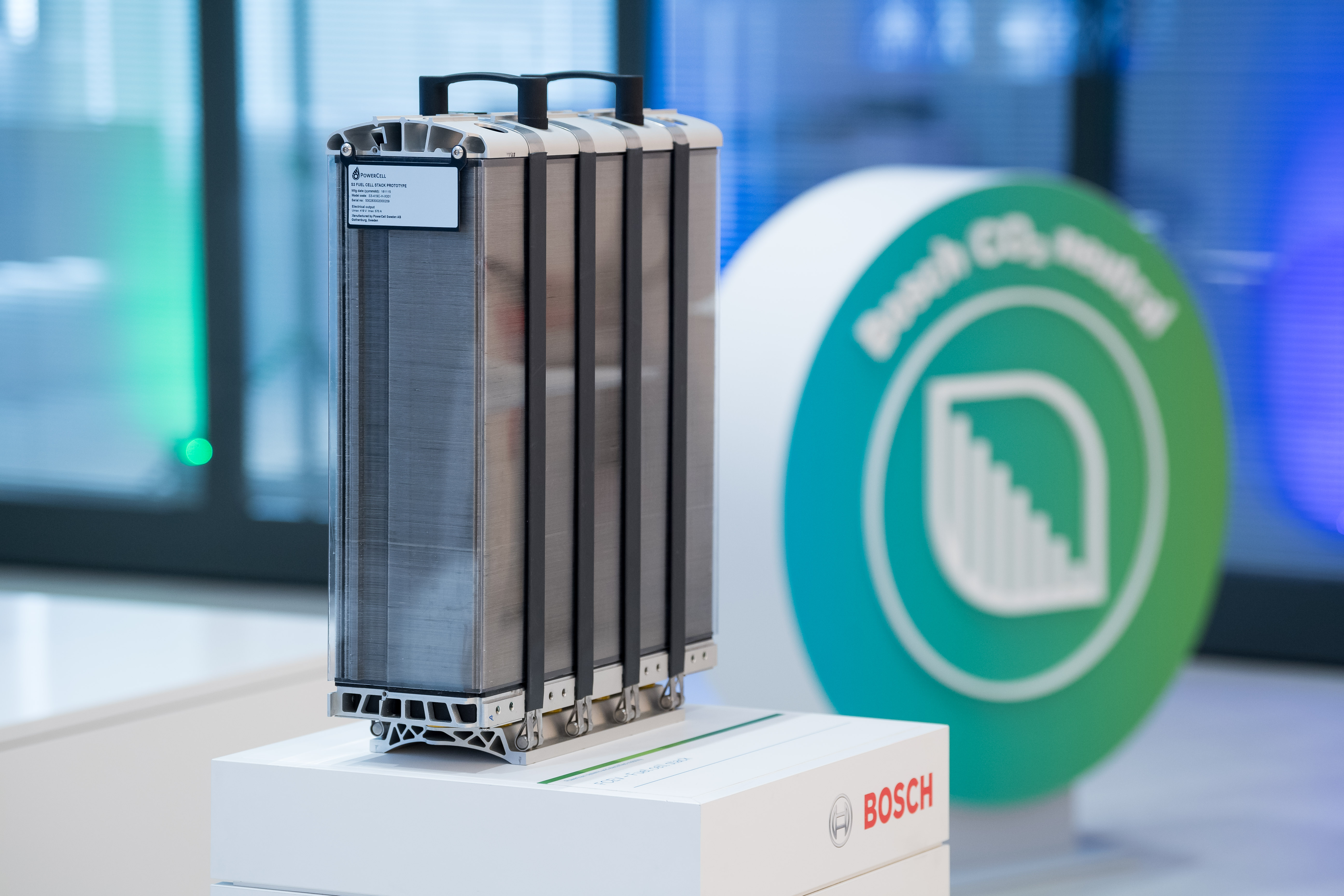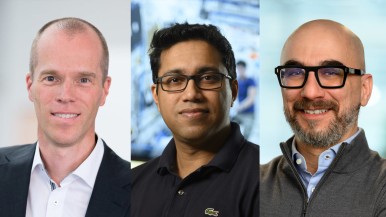Anderson, S.C. – The long-anticipated possibilities presented by fuel cell technologies continue to become a reality globally and in the United States. Mobile fuel cell technology presents a viable option for climate-neutral transportation of goods in Class 8 vehicles where battery electric alone still presents challenges due to battery size and weight. Fuel cells make all-electric operation of large vehicles for long trips a reality. Bosch, a longtime leader in powertrain and propulsion technologies, announced today that it will also produce fuel cell stacks in its Anderson, South Carolina, facility as part of a more than $200 million investment expected to create at least 350 new jobs by the start of production in 2026.
As part of Bosch’s local for local manufacturing strategy, the fuel cell stacks produced in Anderson will drive hydrogen-powered trucks coming to the roads of the U.S. in the next few years. A fuel cell operates by using hydrogen to generate electrical energy. As the hydrogen ions pass over the fuel cell plates, they combine with oxygen to create electricity. The only by-product is water, allowing the vehicle to run with zero local carbon emissions. When hydrogen is produced using renewable energy, also called green hydrogen, fuel cells enable vehicles to be operated nearly CO2-free. Especially for large, heavy vehicles, fuel cells have a better carbon footprint than exclusively battery-electric when the CO2 emissions for production, operation and disposal are added together according to research conducted by Bosch.
“The hydrogen economy holds great promise and at Bosch we are all in,” said Mike Mansuetti, president of Bosch in North America. “This is a significant milestone as we announce the first fuel-cell related production for Bosch in the U.S. to support the growing demand from our local customers as part of a diverse approach to powertrain technology.”










